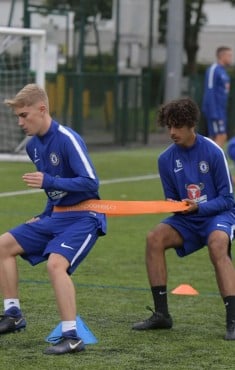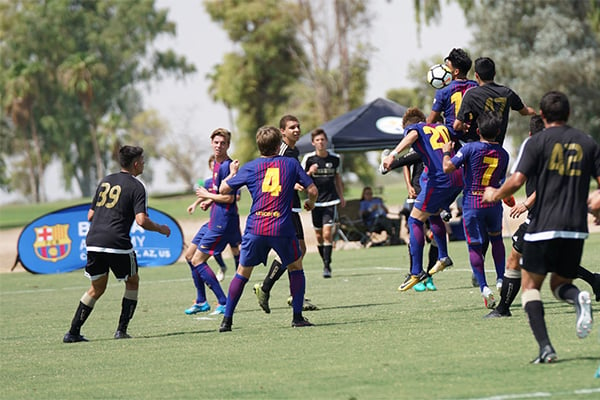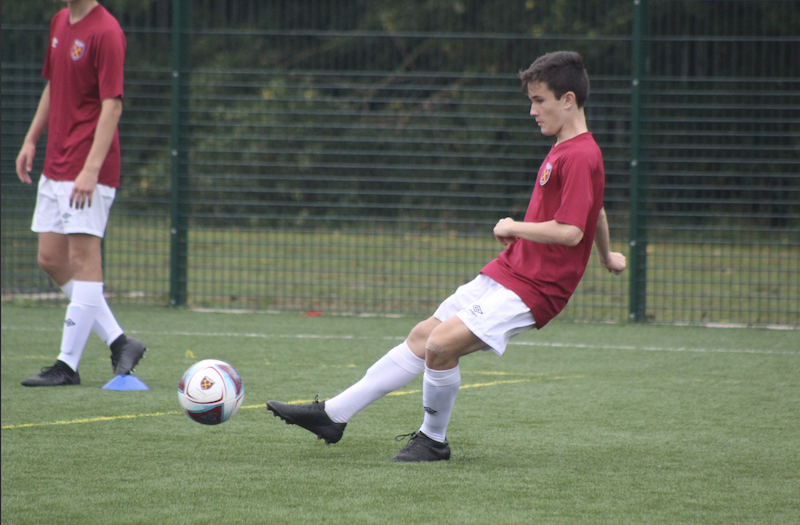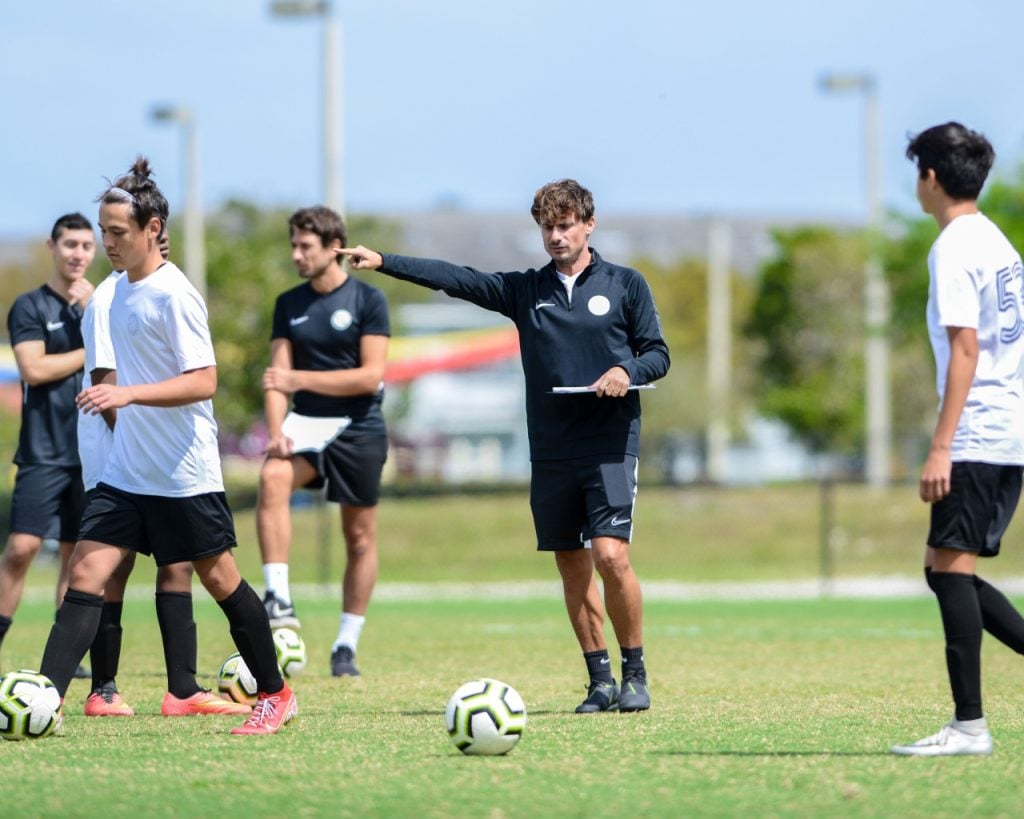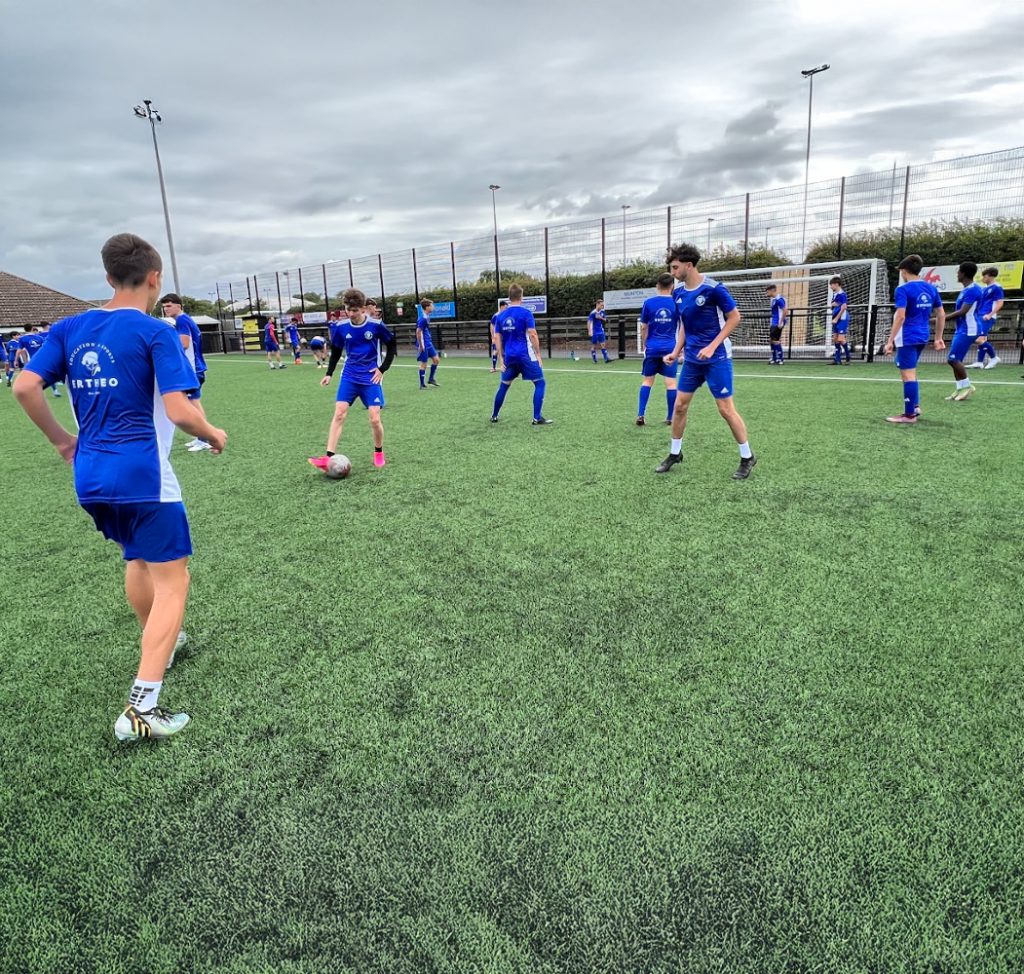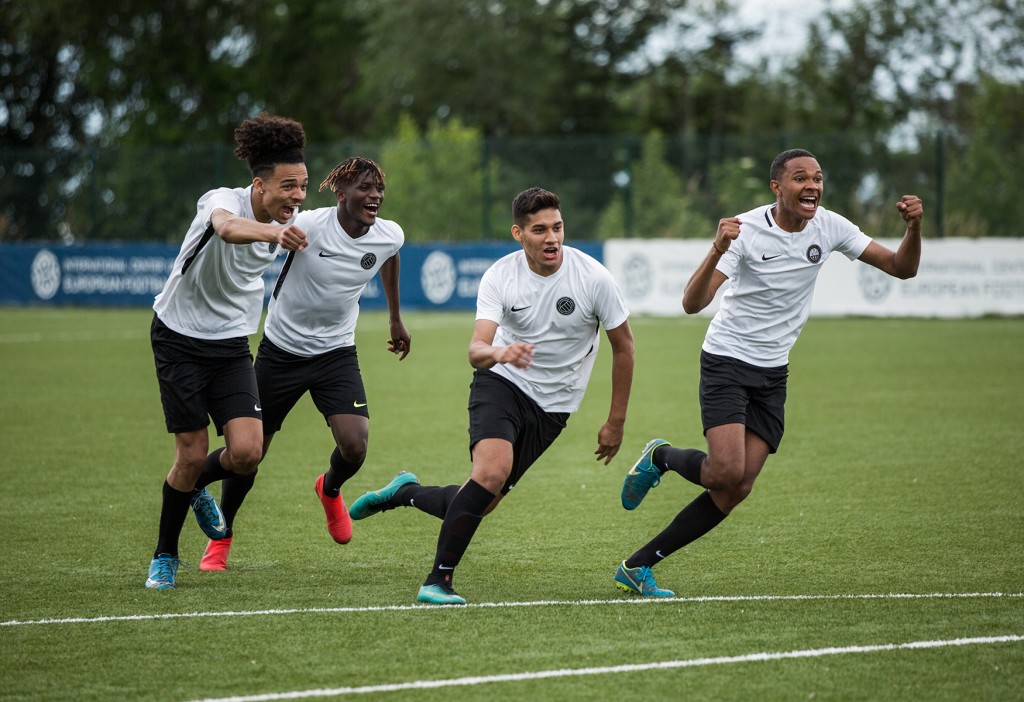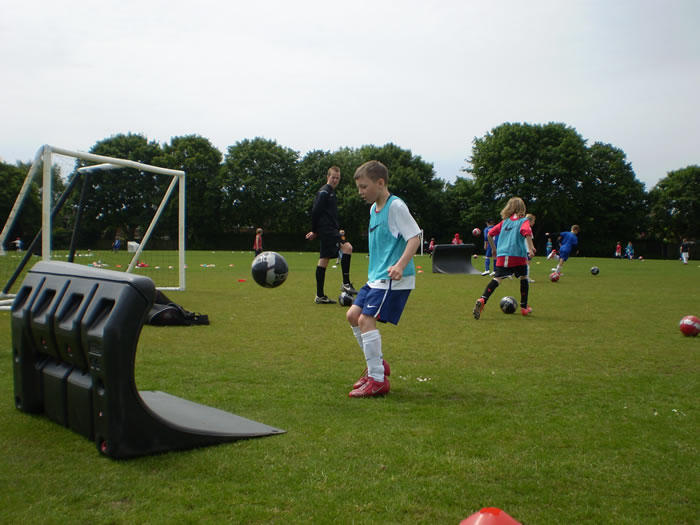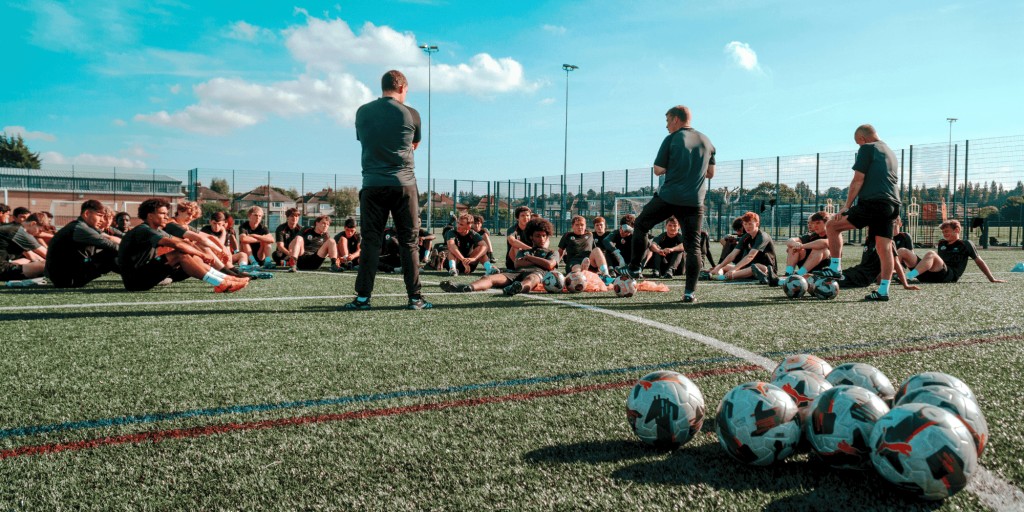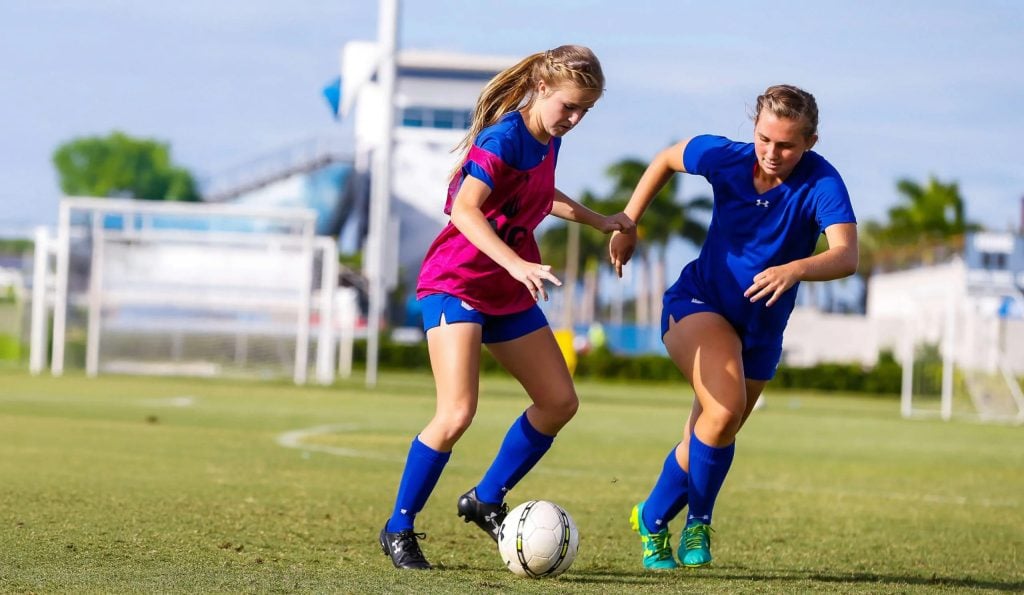Table of Contents
would you like to reach your full potential as a soccer player? Then you will need much more than talent and ambition to achieve it.
To become a great soccer player you need technique, intelligence, fitness and the right mentality to perform at the highest level.
The problem is that it is not very easy to know for sure how to develop good technique on the field or build the ideal physique to compete.
Most of these characteristics are trained in the best soccer camps in the world because of their high effectiveness and importance for the player’s growth and performance in matches.
Of course, in order to train all this repertoire of skills it is essential that the player has perseverance and a desire to learn.
A great player is not one who thinks he knows everything, but one who is always eager to improve and hungry to learn new things that will help him to be even better.
Even professional players train certain aspects of their game when they are already at the top of their game.
For example, Lionel Messi became much more effective in his free kicks and right-footed shots as a professional player, he has never stopped training and learning new things.
That’s why, in this article, we’ll show you those 15 all-important skills you need to improve in order to reach your full potential as a soccer player.
TIP #1 – High Performance Soccer Academies
Private academies teach talented young players to develop their skills and prepare them to compete at the collegiate, semi-professional or professional level. Not only do the best academies have connections within the soccer world, but they also know how to get their students to the top leagues, but they also take education very seriously and prepare their students to be successful in all areas of life.
How to improve your soccer technique
Four basic skills that every professional player should have can be derived from the technical side of soccer.
1. Ball control
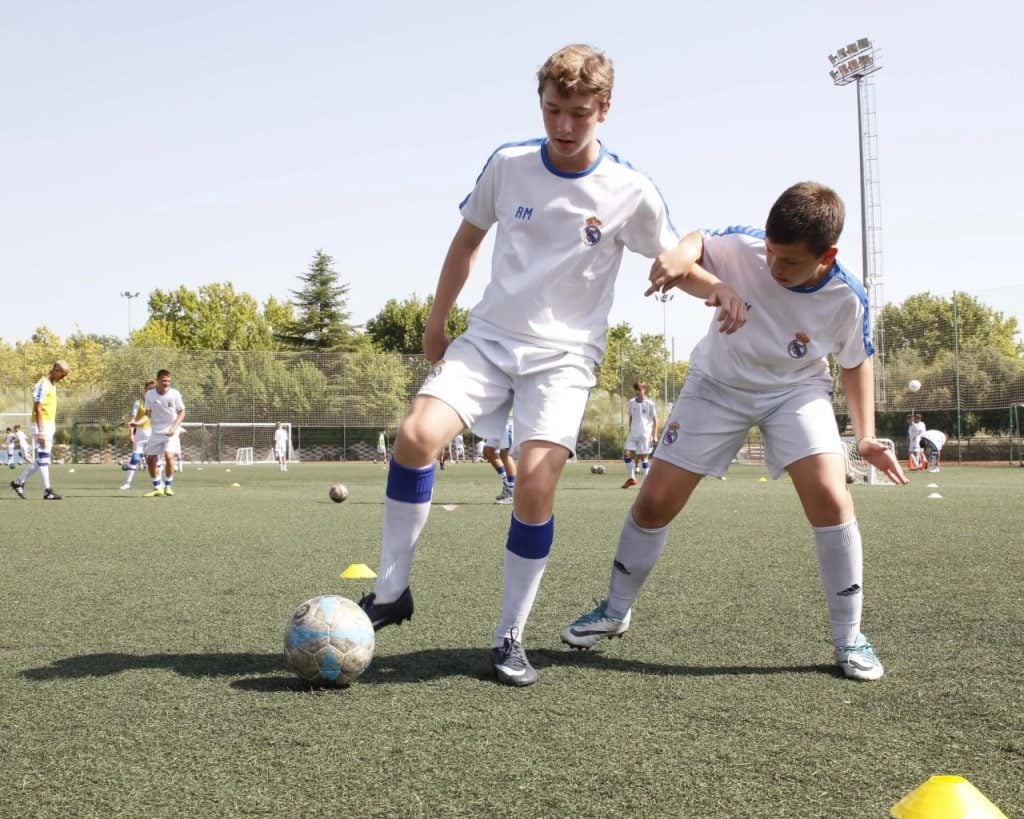
Ball control is the starting point for the vast majority of plays in which a player will participate on the field.
Every professional player must have the ability to control and dominate the ball with his feet, legs, chest, shoulder and head.
A player with exceptional ball control has the ability to receive all types of passes, whether they be grass balls or aerial forward passes that cross the entire field.
Ball control is also the player’s ability to maintain possession of the ball, even when opponents are trying to take the ball away from him.
On the contrary, a bad ball control makes you a limited player and incapable of having the ability to resolve all kinds of actions. A clear goal scoring opportunity can be wasted by a simple bad ball control.
So for this and more it is very important that you practice your ball control, that you are able to keep the ball close to you and dominate it completely after receiving a pass or capturing a divided ball.
The feints when controlling the ball are also important to disorientate the defenders, being a resource widely used by great midfielders like Luka Modric or Andres Iniesta.
2. Dribbling
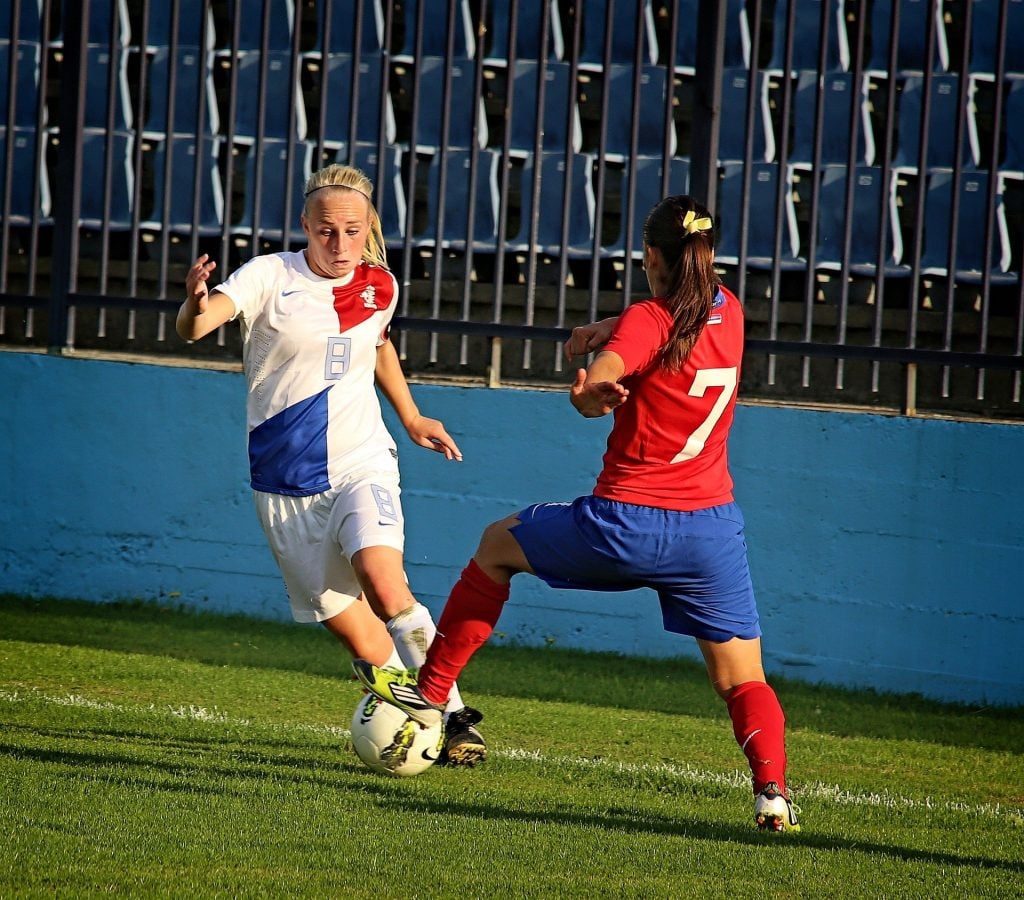
Dribbling is another fundamental aspect within the repertoire of skills that every player should have, as it allows you to have total control of the ball when you have it at your feet.
The advantages of having a good dribble is that you will be able to dribble the ball around the field in different directions, at different speeds and with your two feet, as needed.
An essential thing that a soccer player must have in today’s times is a good command of the ball. That is why even goalkeepers nowadays practice their dribbling, as they are becoming more and more important in generating play.
Besides, making a mistake and losing the ball because of a bad dribble can leave your team very compromised in the defensive phase, especially if you are a midfielder or defender.
On the other hand, dribbling is one of the lethal weapons of wingers and forwards. A fast winger becomes a real threat to the opposing defense when he has a good dribble.
Dribbling is what allows you to execute moves to get past opponents who want to take the ball away from you. In addition, it prepares you to add a filigree move or two to your repertoire to trick opponents.
Combining excellent ball control with fast and unpredictable dribbling will make you an indispensable player for your team.
3. Passing accuracy
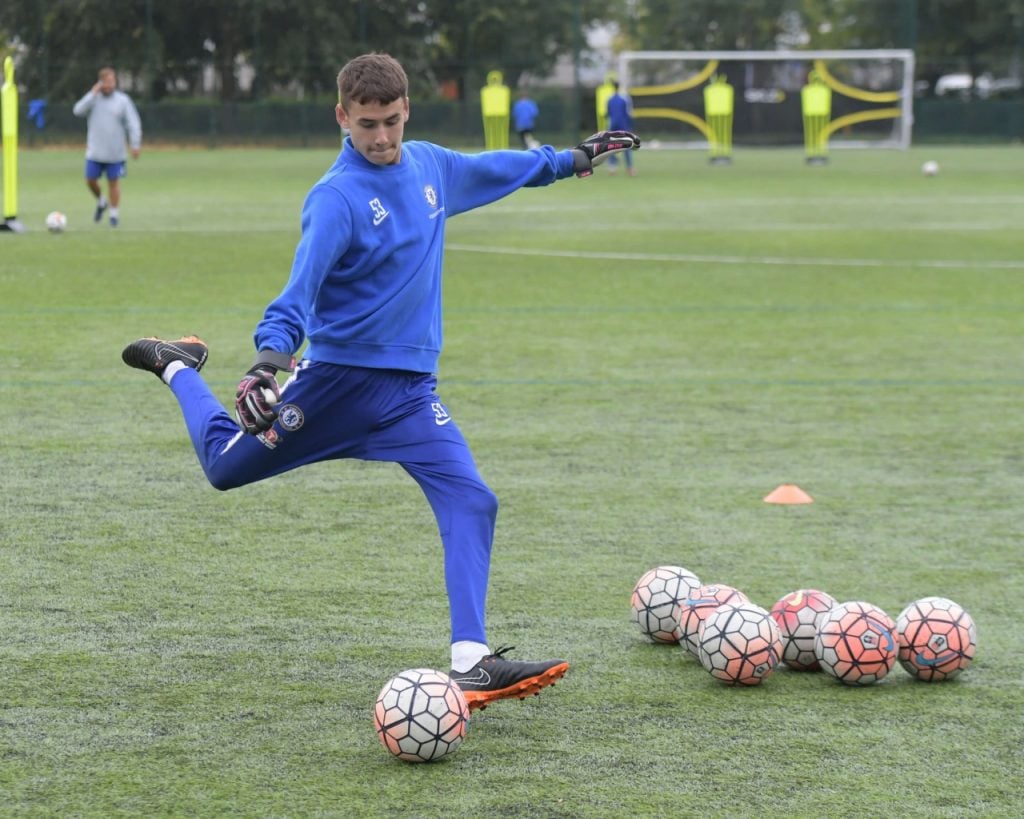
Good passing accuracy means knowing how to make accurate passes with both feet to a teammate’s location or into space to continue the play.
Players with good passing accuracy are able to hold position with short, quick, horizontal passes. They also have the ability to take risks with empty passes that surprise the opposing defense and initiate an offensive action.
In addition, the importance of knowing how to pass the ball with both feet should also be emphasized. A player must have as many resources as possible to resolve any game situation in the best possible way.
A player who passes the ball well will always have many opportunities to play and stand out in his team. No matter what position he plays, knowing how to pass the ball well adds a lot of value to your team’s offensive game and serves to subdue the opposing team in the offensive phase.
4. Body control
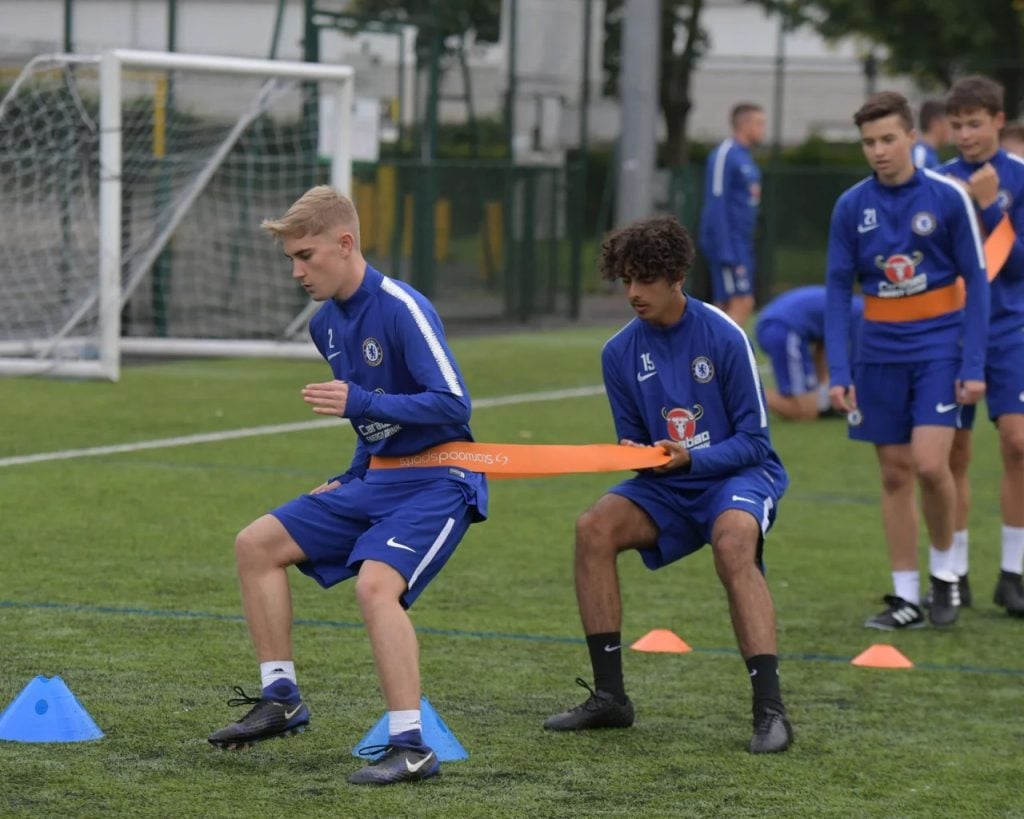
Body control is that skill that will allow you to move fluidly on the field, keeping your balance and with good coordination.
Having good body control will allow you to correctly execute all your movements on the field. You must control and be aware of how to use your body to make good passes, hit the ball well or dribble to leave an opponent behind.
In addition, body control also includes knowing how to adopt the correct posture for running. Many players, such as Erling Haaland, have somewhat unusual running postures on the field, but this is not the result of chance, as they get better results and make better use of their bodies.
This skill is also fundamental to know how to lower your center of gravity when dribbling. This will allow you to be much more unpredictable and quicker to deceive defenders, who usually have a high center of gravity due to their height.
And, of course, all this set of characteristics will help you have a better balance on the field and be well positioned to act and react to any unexpected play.
TIP #2
Improving your technique is a matter of hours of practice and doing several drills repeatedly. Playing friendly matches is not the ideal way to improve these essential skills. Instead, players practice drills focused directly on the skill they want to train until they master it perfectly. After that, they use what they’ve learned on the field in matches. Check out these soccer drills you can practice with a friend.
How to improve your understanding of the game
Unfortunately, many players focus too much on training their physical side and completely forget about their mind.
Having the intelligence on the field to understand the game allows you to make the right decisions on the field and faster than your opponents.
An intelligent player always seeks to have the most correct game possible, reducing his energy expenditure and giving his best effort when situations allow it.
Beyond the fact that this is an aspect that can be trained at home, the best decision to improve your understanding of the game is to sign up for a soccer summer camp.
These camps will teach you how to improve the three skills that comprise the Intelligence section of a soccer player.
5. Space Utilization
Taking advantage of space is that skill that allows you to capture those empty sectors of the field and exploit them to your team’s advantage.
Space is directly linked to the interpretation of the game, as players can interpret the use of space in different ways.
The training of this skill consists of interpreting as accurately as possible all the spaces left by your opponent in the defensive phase.
To do this you must understand very well the movement of your teammates, their favorite offensive tendencies and also the effectiveness of the possible moves you can make as a result of a situation.
In addition, a smart player always knows where his teammates are and where they should be depending on the position of the opposing team.
There are two reasons why you should know the location of your teammates. The first is to tell them where they should be if they are not there and the second is to anticipate their position and to be able to pass instinctively, almost without looking.
Scouts refer to this on-field intelligence also as the sixth sense of soccer.
Finally, intelligent players are also very clear about the geometry of the game. They know how to position themselves to create passing angles and opportunities to attack offensively.
In addition, they also know how to block passing lanes in the defensive phase and make it difficult for the opposing team to build an attack.
Taking advantage of space is something complicated for beginner players but it is an essential quality that anyone who wants to be successful in soccer must have.
In fact, exploiting space is related to another great quality that every soccer player must have, tactical knowledge.
TIP #3
One way to improve your space utilization is to watch good soccer and watch it actively. Pay attention to all aspects of the game, not just the ball. Look at the position of players on the field (from both teams) and try to anticipate passes and positioning. You can do this with pre-recorded games, as they allow you to give pauses when you need to and really concentrate on the movement of the players. Save the games and share them with your friends.
Tactical knowledge
Tactical knowledge refers to the player’s knowledge of the structure of the game. The formation of a team greatly influences the tactics and can lead your team to victory or to a disastrous defeat.
Soccer formations have changed drastically in recent years. If you want to be a smart player, it is a great idea to know that there are several formations that are currently used to, from there, form tactics and strategies.
While space exploitation helps smart players see immediate opportunities, tactical knowledge contributes to the player’s ability to anticipate future opportunities that could be created from every move on the field.
Thus, players who are tactically intelligent are very good at holding their position and not only wait for their moment to attack, but seek to create that right moment to attack.
Anticipating the movements of teammates and opponents allows smart players to move the ball up and down the field, creating loopholes in the opposing defense until there is enough space to attack.
Tactical awareness is also essential to playing well defensively. When defending, players must constantly anticipate opponents’ movements in a timely manner. If they anticipate them correctly, they can close passing lanes, prevent easy passes and force mistakes.
Likewise, tactical intelligence is extremely important for central defenders and central midfielders because they are the players who are in the best positions to see the position of all the players on the field to communicate and command their teammates.
For this reason and much more, tactical knowledge is fundamental for anyone who wants to achieve success in soccer.
TIP #4
One of the best ways to gain game intelligence is to train with different coaches and players at different times of the year. This will help you learn from different perspectives and expand your repertoire of strategies.
Major teams such as Real Madrid, FC Barcelona, Manchester City, Liverpool, Chelsea or PSG offer summer and year-round camps where players can learn according to their philosophies and methods. Many programs are about teaching theory and analyzing videos where they talk about the importance of each player’s decision making on the field.
On the other hand, another feasible option to train your tactical knowledge is to sign up for a summer program at one of the best private soccer academies around the world. At Ertheo we offer different high performance academy alternatives including our Barcelona High Performance Academy and our UK High Performance Academy.
Risk assessment on the field
In soccer there are several risky situations and plays where a rash decision can lead to the loss of the ball and a goal conceded in your own goal.
When a team loses possession, every member of the team must expend extra energy until they can regain control of the situation. This generates fatigue in the squad and physical wear and tear that could take its toll at the end of the game.
These excessive or hasty actions can use up a lot of energy and wear you down when there is still a lot of game left to play.
However, the solution is not to be a passive player either. For this will cause the other team to have the initiative and it will be very difficult to score a goal to win the game.
“If you’re attacking, don’t get as tired as if you were defending,” Kyle Rote, Jr.
That’s why smart players are constantly managing and evaluating the risk and reward of the decisions they can make on the field.
“I’m not a perfectionist, but I like to feel like I’m doing things right. More than that, I feel a never-ending need to learn, to improve, to evolve, not just to please the coach and the fans, but to please myself. I firmly believe that there are no limits to learning and that I can never stop, no matter how old I am.”
Cristiano Ronaldo
TIP #5
To develop intelligence on the field requires lots and lots of playing time and even more time to reflect. The smartest players always reflect on their mistakes and determine what things to change to improve their performance
Physical appearance
The physical aspect is another essential element for success in soccer. A match usually lasts between 90-95 minutes with only 5 substitutions nowadays, so players are put under very high physical demands.
Players run an average of 11 kilometers per game. The wingers, who have the most intense runs, usually have about 150 sprints of at least 75% of their total speed per match.
And those who move the least each game, which are the center backs, usually run about 9.5 kilometers per game, which is not an easy figure to achieve either.
So, in addition to having speed and mentality, every footballer needs to have balance and physical stamina to have the ball at his feet, shoot, pass long distances, win balls and aerial balls and much more.
That said, fitness compresses these four essential elements that every soccer player needs to be successful:
8. Endurance
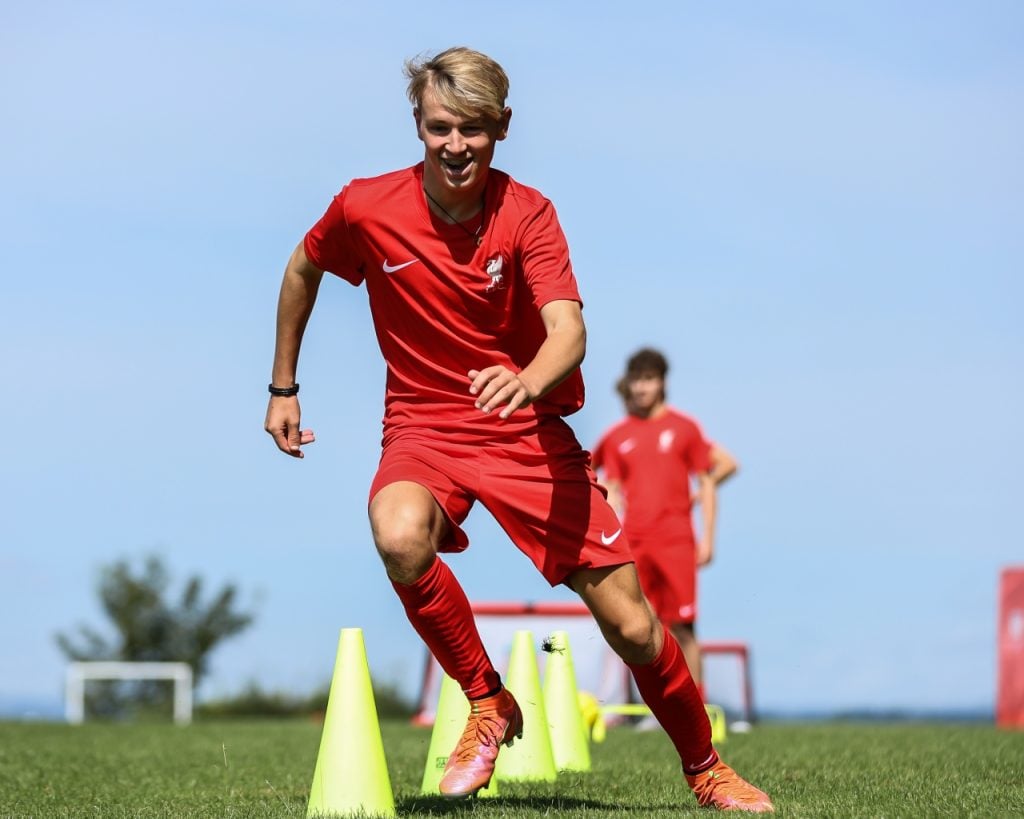
Endurance is that ability or quality that will allow you to keep going until the end in every match, especially when you are in adverse conditions, feel tired, stressed or have any other problem on the field.
However, in the section of endurance in soccer we must also talk about mental strength and the ability to continue despite the endless fatigue that the player may feel.
That is why top-level soccer players do not only focus their endurance training on the physical, but also train their mental fortitude.
As the body tires it becomes more difficult to be in control and to concentrate in order to make the right decisions. Therefore, the ability to endure and give your best both physically and mentally for more than 90 minutes of play is critical to success in soccer.
Nowadays, fitness makes a big difference in matches at the professional level. Teams that train better have a greater physical background that allows them to make a difference to their opponents.
And there is no better place to train fitness than a private high performance soccer academy, because they focus fully on training the player to withstand adversity.
The greatest teams in the world hire the best trained professionals in the physical section to have this advantage in their favor. An advantage that is becoming more and more noticeable and that separates the elite leagues with the professional soccer of medium and low level.
“The vision of a champion is that one that still exists when you’re tired, drenched in sweat, on the verge of exhaustion, when no one else is watching.”
Mia Hamm
9. Balance and coordination
Balance is another imperative skill that all soccer players aspiring to the top must have. By having good balance you will be able to move easily to take advantage of small spaces left by defenders or manufacture them with your own movements.
A player with a good balance is agile, he is fast; he is definitely a threat to defenders because of how unpredictable his movements become.
In addition, to achieve all this you must also train coordination. You must know how to correctly use all your body parts to improve your technique, execute prepared moves and not make mistakes like touching the ball with your hand or missing a ball control.
Therefore, the lethal combination that every player must have is balance, coordination and speed. With this you will be able to perform at the highest level in any area of the field, both on offense and defense.
Remember that speed and balance are not only important for attacking. A good defender must always have good coordination and balance to use his body to defend the forwards and prevent them from passing.
And it doesn’t matter how tall you are either. Obviously smaller players find it easier to move in tight spaces, but being tall doesn’t have to be synonymous with being clumsy. Zlatan Ibrahimovic is a clear example of this.
TIP #6
Make sure you train your ability to play with both feet. It’s hard to coordinate and have balance when you focus on only half of your body. And it doesn’t matter if you are left-footed, practice your passes, shots and ball controls with your right leg, you will see that you will become a much more complete player.
Speed
One of the most differential skills today, without a doubt, is speed. Speed encompasses everything that is moving fast on the field, including the reactions you have with and without the ball.
Running speed allows you to develop your ability to move between defenders and dribble past them. Being fast is essential for any player who wants to be unbalanced and make the difference in his 1-on-1 confrontations.
On the other hand, for defenders it is very important to be fast on the run to read the movements of the striker and anticipate them to take the ball away or cover a space.
The second type of speed, on the other hand, is the one that allows you to cover long distances. Speed over long distances allows you to take advantage of the spaces left by your opponents and beat your defenders to get to the ball faster.
Nowadays, speed is a basic skill for every footballer. A player must be very agile with the ball at his feet. If you are too slow, you will not be able to deceive your opponents with the ball and you will never create dangerous actions.
And of course, speed is trained. In professional academies there are trainings focused solely on developing the speed of soccer players.
So the only solution to be faster, and also to be a better player, is to spend more time training.
TIP #7
The way you run greatly affects your speed. There are general rules of thumb for running efficiently that increase your speed. Here are a few:
- The runner should have his or her body leaning slightly forward. This allows the person to keep his or her core contracted and can lift the knees to move forward at high speed.
- This way of running also makes it easier and more comfortable for your knee to move as you land on the surface. A runner should never hit the ground in front of their center of gravity. This causes you to lose speed and can also lead to injury.
- The player should run with short, quick strides. Extending and overextending your stride makes it difficult for your steps to go in line with your knee, increasing the risk of injury.
However, running form is a controversial topic. Some say the runner should land their foot with their forefoot rather than their heel. Others say that the best running form is always landing from the heel and toward the toes. The best thing to do for this aspect is to seek professional help at a camp designed to improve your running form. It would be a great investment for a player who is interested in increasing their speed.
Finally, other functional strength training can also help you get faster. Running with parachutes or laces attached to other running partners can serve to progressively increase your speed.
Strength and power
Strength and power, along with speed and agility, contribute to a player’s ability to execute shots, long passes, retain possession of the ball with his body, steal balls from opponents and win aerial duels.
Therefore, leg strength is also undoubtedly important for passing the ball long distances and shooting from outside the box, while the strength of the middle and upper body function to protect the ball and steal the ball from opponents.
In soccer, arm strength is used to get into space while moving quickly. On the other hand, leg strength helps you keep your center of gravity low. This is why, although you should focus more on working your lower body, you should never forget about the rest of your body.
A fast player is easier to score when he doesn’t have the strength to resist pushes from defenders and doesn’t have the stamina to recover from physical contact.
Being strong is a must for any player who wants to be successful in soccer. It is a basic skill that will help you strengthen your entire repertoire and make you a more decisive player.
Yes, technique and understanding of the game are vital to get to the top; but the strength and intensity you must have to fight every play and go for the ball with conviction is something you can never forget to train.
Mentality
Having the right mentality to play is that final requirement to succeed in soccer. Soccer players have their heart and soul to be successful in this sport; and that is directly related to mentality.
However, that blazing passion can turn to devastation and disappointment after a loss, so you also have to train your mindset to develop resilience and always stay focused on continuing to improve.
Success is not accidental. It is hard work, perseverance, learning, study, sacrifice; and above all, it is love for what you do or what you want to learn to do.
Pelé
So, the mindset section encompasses these four skills:
12. Passion and love for the sport
This skill or quality is extremely important for every soccer player, as it is the main strength that will allow you to be constant and keep wanting to learn more and more to become better.
Soccer players have to spend an enormous amount of hours practicing and even when they have already achieved success, they have to keep training to improve their repertoire even more.
And we are not just talking about hours on the field, you also have to watch matches, analyze team tactics, watch other players and add their best techniques to your game; and many other things.
In basic terms, to be successful you have to breathe, watch, smell and eat soccer every day of your life.
DID YOU KNOW..
have you heard of the 10,000 hour rule? The 10,000 hour rule says that to be an expert at something you must spend 10,000 hours practicing. The rule is based on a study by K. Anders Ericsson and was made famous by Malcom Gladewell’s bestseller Outliers. Even though the rule was officially deprecated, his idea persists. It takes a lot of practice to become an expert at something and even more practice could make you one of the best in the world.
13. Calmness and mental toughness
The world of soccer is increasingly loaded with external factors that can take your focus off what’s happening on the field. Players have become influencers and public figures that are talked about all the time, especially if you are very good.
The passion and love for the sport helps you a lot to be consistent and keep learning about soccer, but you must also combine it with the calmness and mental toughness needed to not give up.
Being calm and mentally strong will help you:
- Play well under pressure: When time is running out, players start to play without thinking too much. Calmness will help you to be a player who makes the best decisions at the peak of the game. This is essential for kicking penalties, for example.
- Accept defeat: At some point in your career you are going to lose. Mental strength is important to face defeat in the right way and motivate you to improve from positivism, avoiding toxic thoughts that diminish your confidence.
- Handle the aggressiveness of the other team: In many matches the opponents may be more aggressive than they should be against you and other teammates. They may hit you and provoke you when the referee is not watching to mentally take you out of the game. Anger is a bad advisor for making decisions, so if you get irritated, you lose. Being calm will help you get through these situations with peace.
- Accept rejection and persevere: The road to success for a soccer player is not a bed of roses. It is very possible that you will be rejected by an academy on your journey and giving up is not an option. Many players are rejected by teams that simply don’t believe in them and then make it to the top. It is essential to accept rejection and move on despite the criticism.
The secret is to believe in your dreams, in the potential you have to be a star. Keep searching, keep believing and don’t lose faith in yourself.
Neymar
14. Learn from your coaches
Another important quality that a soccer player must have in his mentality is to learn from his coaches.
Dr. Goldberg, a leading internationally recognized sports consultant, defines the uncoachable athlete as that person who never feels that they are wrong, that the coach is unfairly blaming them and who refuses to receive any constructive criticism so as not to take responsibility for their mistakes or failures.
A professional soccer player can never fall into such a profile. No matter how talented you may be, you should always be interested in learning from your coaches.
This doesn’t just mean listening to their instructions, it also means accepting feedback without being offended and really thinking about how to correct those mistakes they are telling you you are making.
One thing coaches love is for players to have that ability to correct themselves and try new things to get better results.
A player gains the coach’s trust when the coach sees that he listens to him attentively and uses his cues to improve his game and that of the entire team.
If you want to be successful in soccer, get along well with your coaches and always keep an open attitude to learn from anyone who wants to teach you something.
15. Self-motivation
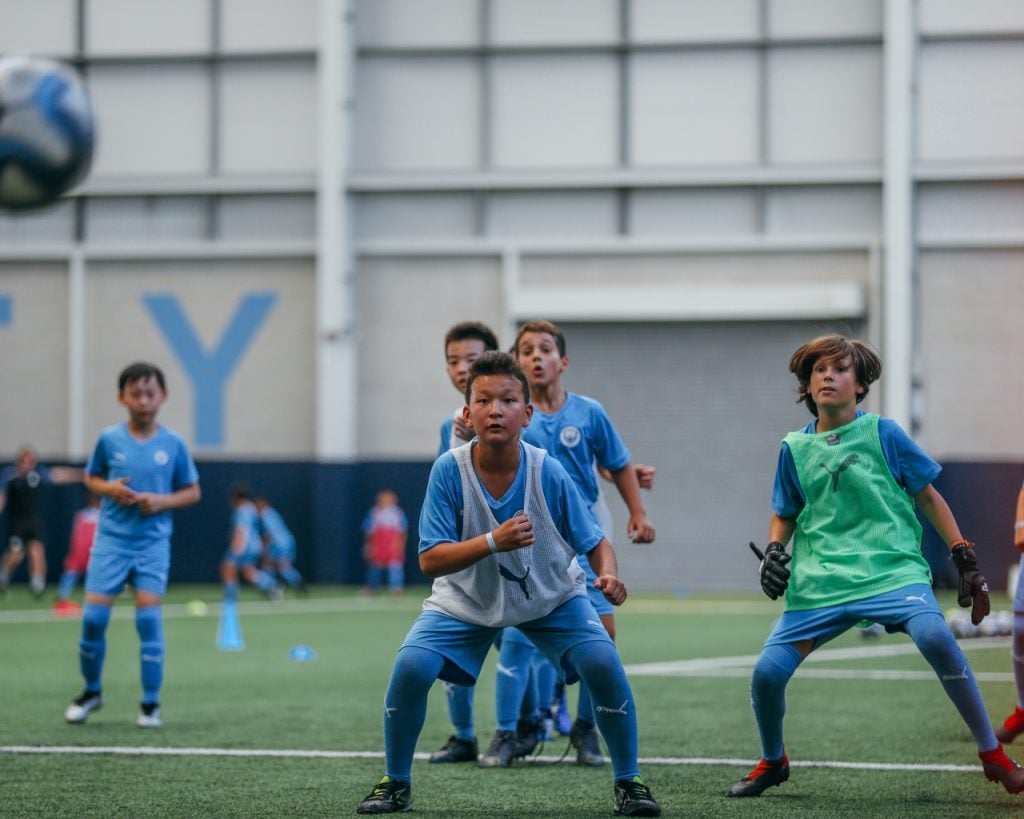
Finally, the last quality or skill that a player who wants to be successful in soccer must have is self-motivation.
Self-motivation will allow you to not need anyone or any external reason to keep playing, learning and improving every day.
Becoming one of the best in the world requires countless hours of practice and having a good attitude every day is not easy.
However, the idea is that you can create a routine that allows you to be disciplined in soccer. Of course, you will have to make many sacrifices of time and put other things aside to focus fully on training and being better every day.
For example, you must eat correctly in order to perform at your best on the field. This implies following a strict diet that may not allow you to enjoy that food you like so much very often and, as easy as it may seem, these are efforts that you must make every day and that are not easy.
You must also establish an exercise routine and a schedule for your entire week. The idea is to try to stick to it and be as professional as possible. Don’t wait until you reach the elite to behave like an elite professional, prepare yourself beforehand to be one.
A tip to develop self-motivation is to set short-term goals and objectives. Something that motivates people a lot is to see their progress and results after their hard work.
Work always pays off and our routine should focus on making us see those results to motivate us more. Once you get into the cycle, you won’t want to stop.
Before we finish, 3 tips for gaining a competitive edge in soccer
Beyond the 15 skills that have already been mentioned, there are also other methods that allow you to increase your chances of succeeding in soccer.
Having a competitive edge over others will get you selected by scouts and coaches. And this has nothing to do with anything other than the sporting and educational background of the player.
Therefore, we will now give you some tips to improve your skills as a player and become a professional player.
1. Attend a high-performance private soccer academy
Contrary to what many believe, even though the most prestigious clubs in Europe hire youth players and offer them to be part of their lower divisions, this sports training can be improved if the player attends a private soccer academy.
These private academies enjoy advantages that a traditional club school cannot offer because of its limitations. In addition, you also need the player to train before being accepted in a professional team, since there are very few vacancies and many applicants.
In addition, private academies also focus on teaching the student the other branches of study, not only sports. 5 out of 6 players who are part of the lower divisions of a team are released before the age of 21, so the probability of success is low.
However, training the student in different areas of life will allow him to have a solid plan B in case his soccer career does not reach the desired peak.
Advantages of private soccer academies compared to club academies.
- General training: Private academies do not focus only on soccer. They prepare the student to face all areas of life, prioritizing soccer, but never abandoning the other areas.
- Impartial evaluation of the player: Since they are not directly linked to an institution, the evaluations of the players’ performance will always be sincere and impartial. From the moment the player enters the academy, the future of the player and his possibilities of making the professional leap are evaluated.
- Cultural exchange: At Ertheo, for example, we have international academies attended by young people from all over the world. This encourages cultural exchange among students and global learning about the customs of different countries around the world.
- More personal teaching: In private academies, much more personal and dedicated teaching is given to the students. The big club academies focus only on selling, transferring or signing players; in private academies they take them by the hand so that they can grow within their possibilities.
2. Study with an online UEFA Pro Online personal trainer course at a distance
Yes, just like any other university course nowadays, soccer can also be studied from a distance at Ertheo.
The best thing is that the player receives all the attention and preparation that he would receive in a classroom course. All the basic concepts of the game have been adapted so that your training will take you directly to the highest level.
In addition, this course also has the supervision and advice of a UEFA Pro Online personal trainer at a distance.
The player will have a completely personalized evaluation and follow-up to ensure his improvement training after training.
On the other hand, as for the theoretical part of the course, this is the syllabus:
- Offensive profile management: Basic notions about offensive positioning, tactical intelligence, wisdom to identify and attack spaces, identify the weaknesses of opposing defenders and all the technical aspect that covers ball control, shooting, dribbling and passing.
- Defensive profile management: Learning the defensive positioning of players on the field, adapting to the most used formations and the behavior of each player in defense, risk management, decision making.
- Behavior on the field without the ball: The player is instructed to know what to do when he is away from the ball, in an intermediate position in relation to the ball or close to the ball. Both in offensive and defensive phases.
Individualized Plan for the beginning of the season
At the beginning of the season, training sessions are focused on improving the player’s aerobic endurance. It is imperative to work on physical fitness so that the player has enough energy to practice his technique and basic aspects of the game.
In addition, maximum strength is also worked on at the beginning of the training. Every athlete must have the strength to compete, especially in contact sports. Physical conditioning prepares the player for the demands of a high-level match.
Individualized plan for the competitive period of the season
At the beginning of the competitive period of the season, players begin to practice their anaerobic endurance, i.e. their ability to make a very intense physical effort for a short period of time.
This training is also combined with sessions aimed at increasing explosive strength and speed.
With the physical condition already better trained, it is time for the soccer player to demand more of himself and start training his speed, a quality that will be fundamental for him to be accepted by professional teams and gain more minutes in matches.
Other areas of study
- Reading the game
Throughout the course, the player will learn how to read the game and have a good understanding of the game on the field.
Whether on offense, defense or in transition, every player must be very clear about his role in each game situation to avoid imbalances within the team.
These trainings will test the player’s intelligence and are intended to drastically improve his decision making and risk management on the field.
Of course, we will also delve into the tactical aspect so that the player adapts his game to different positions on the field and to different match situations.
- Knowledge of one’s own abilities (strengths and weaknesses)
Every player who wants to be successful in soccer must be clear about his limits and the things he needs to improve.
At Ertheo we teach students to introspect and identify their own strengths and weaknesses.
Being clear about our strengths is just as important as knowing our weaknesses. Strengthening strengths and minimizing weaknesses is the surest route to reach the highest level.
Hiding and denying your shortcomings will only cause you to stagnate and become a limited player. In addition, it also helps the player to be aware of his faults and develop that humility that is so lacking in specific moments.
- Identify the opponent’s skills
This is basically the same process as the previous point, but focusing on the opponent.
Previously studying the opponents you are going to face is a great plus to identify their weaknesses and strengths. However, at lower levels there is not so much technology and material to study them before the match, so you have to analyze on the fly.
With these training sessions, players will learn to identify which technique, resource or movement an opposing player does not master well in order to get the most out of it.
Likewise, strengths must also be detected to be careful in the defensive phase so that an opposing player does not make the difference by repeating the same move over and over again.
- Development of control in different situations
Calmness and good decision making are essential to maintain control in a game. At an early age it is normal for players to be more impulsive and frantic, but they must always be aware that every movement on the field will have a consequence.
Self-control, to always stay focused on the game and its situations, and the ability to lead other teammates are qualities that a coach appreciates very much.
- Searching for usable space
One of the most important aspects of the offensive phase is the detection of space between the lines of the opposing team.
Players will learn in the course how to identify these free zones and take advantage of the advantage they generate and how they are able to unbalance the opposing defense, opening the necessary windows to build a dangerous play.
The space must not only be seen by the player who is going to pass the ball, but also by the player who must occupy that space in a timely manner. The players will learn to identify the space and attack it at the right moment to surprise the opponent.
- Mental speed of the player
Having leg speed is very important, but it is of little use if we do not have the mental speed to act.
The ability to react and improvise correctly to unexpected moves is something that every player must also train.
The less time there is, the more difficult it is to make a decision; but the real cracks take advantage of these situations to act faster, be bolder, and take advantage.
- Taking advantage of the space created
Also, identifying a space is the first step, but it is useless if the player does not know how to take advantage of it and what to do to unbalance the opponent.
This topic is focused on the distribution of space within the field and the consequence that movements and passes can have on opposing teams.
- Use of time
Offensive phases cannot always have the same rhythm. They must vary in intensity to make the plays unpredictable for the opponent and to take advantage of the players’ qualities.
The player will learn to manage the tempo of the game according to the situation of the scoreboard, possession and other variables.
Sometimes attacking faster does not mean attacking better; and this will be very clear to the players after the training sessions.
- The importance of individual self-analysis
Every player must be in constant self-evaluation in order to keep improving in all aspects of his game.
No one knows the limits, strengths and weaknesses of a player as well as he knows himself. Therefore, it is imperative that he knows the importance of analyzing his performances and developing a correct criterion on his decision making and post-game evaluation.
- Gym routine for the season
The academy provides a personalized gym routine for each player. According to their age, weight and conditions; players receive their itinerary and start getting the most out of the gym.
- Examples of players to follow by position
There is no better way to learn than by watching the best players. In the course we show examples of players who are benchmarks to follow in different positions.
The intention of this is that players can adapt technical and tactical resources from great players to their repertoire of skills.
3. Get the most out of your UEFA Pro Online personal trainer at a distance
That said, another advantage included in Ertheo’s online course is the presence of an online personal soccer coach who will follow up with the player individually.
Traditional academy coaches have to be in charge of 20 to 25 players per session. It is normal that they cannot have the same level of attention with all the players at the same time.
This causes many players to be ignored and stagnate in their learning due to lack of attention.
A very good way to counteract this is to hire a UEFA Pro Online personal trainer to monitor the player’s progress remotely.
And the best thing is that it is a very simple and practical process for both parties. The only thing you have to do to undergo the evaluation of a UEFA Pro Online personal trainer remotely is to record the matches and training sessions.
Of course, the camera shot must be focused on you and your movements, with an overview of the team’s tactical set-up and other details, but also with a good resolution of your movement and performance on the pitch.
There is no better method for learning than trial and error. This combined with the teaching and active monitoring of a coach makes a player improve exponentially from one training session to the next.
The online personal trainer will closely follow all your movements and details to evaluate your performance, technique, understanding of the game and more variables that may arise in a match.
You will receive a completely personalized feedback with evaluations, indications and training that you should do to improve the deficiencies that were shown in the videos you sent.
This teaching mechanic will make you actively think about your on-court decisions. An individualized training is always better than a group one; and thanks to a UEFA Pro Online personal trainer you can access it from the comfort of your home.
Make the most of all the coach’s advice and you will see how your game will develop faster than ever.
Conclusions
Becoming a successful footballer is a challenge for even the most talented players. These 15 skills, plus the three tips we have reviewed, are essential to your development as a soccer player, but you will need much more than skill to become a professional.
Always being consistent, accepting criticism and moving forward is the most important thing to keep your soccer career afloat.
The important thing is always to keep moving forward, advised in the best possible way and with the conviction that you will achieve your dreams.
And, of course, if you choose to enter a high performance soccer academy; give your best so that you have more opportunities to reach the professional level.

